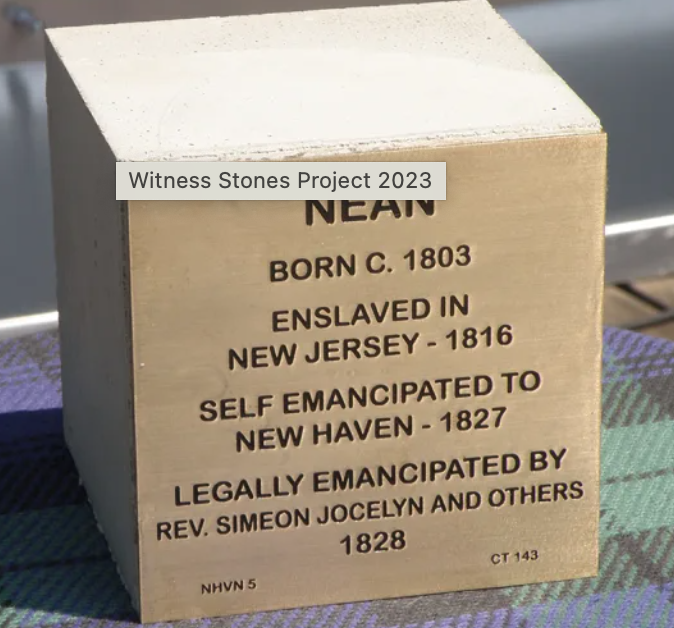
Learn About Nean
A Student Essay by Maia Cort
Nean was born, and enslaved, in New Jersey in 1803. After his original enslaver, Jacob Vanderanter, died in 1816, Nean was left to Vanderanter’s sons, Jacob and Peter. Instead of emancipating Nean, the brothers decided to sell him. At age 13, Nean was sold on July 2, 1816, to Hendrick Brokaw in Middlesex County, Piscataway, N.J. for $300.
Eleven years later, in 1827 when Nean was 24, he escaped his enslavement in New Jersey and made it to Connecticut. It may have been easier for him to pass as a free black man because of the Gradual Abolition Act that was passed in New Jersey on February 15, 1804, stating that all children born into enslavement would now be free but had to work for their enslavers as servants until they were 21 (female) or 25 (male). Since Nean was born just one year before the Gradual Abolition Act was enacted, he missed qualifying for his freedom.
In Connecticut Nean was captured by John Manning, a slave hunter and attorney hired by Henry Brokaw. Because of the Fugitive Slave Act — stating that any slave having escaped to a free state must be returned to their enslaver if the enslaver can prove that they own the slave — Nean had to go to court against Henry Brokaw and John Manning. The case was held in New Haven on April 25, 1828. The Justice of Peace, John Hunt, made his decision five days later, on April 30. Nean lost and was returned to Manning.
The court’s decision was usually made in the favor of the enslaver partly because the judge would be paid more if the enslaved person was returned to the enslaver than if the enslaved person won. Three New Haven abolitionists, Simeon Joclyn, J. Beach, and T. G. Woodward heard of the case and immediately arrived at the courthouse to offer Manning money in exchange for Nean. Manning agreed, as Brokaw likely wanted Manning to return with either money or Nean. The abolitionists bought Nean for $150 and immediately emancipated him. As far as we know, there are no records of Nean’s life after his emancipation.



